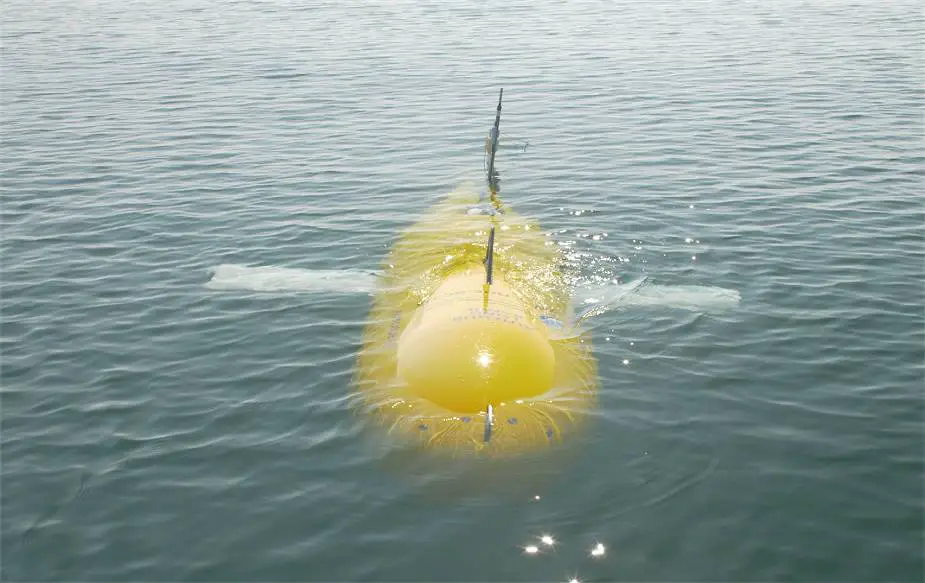Breaking news
British Royal Navy shows its commitment to using autonomous and robot systems for underwater survey work.
According to information published by the British Navy on August 13, 2020, the Royal British Navy has shown its commitment to using autonomous and robot systems for underwater survey work. It comes as the navy, Defence Science and Technology Laboratory (DSTL) and the National Oceanography Centre have renewed and expanded their Memorandum of Understanding for the underwater environment.
Follow Navy Recognition on Google News at this link
 The British Royal Navy has renewed and expanded its agreement for the underwater survey with the National Oceanography Center. (Picture source British navy)
The British Royal Navy has renewed and expanded its agreement for the underwater survey with the National Oceanography Center. (Picture source British navy)
The agreement will see the organizations continue to collaborate in trials and testing of marine autonomous systems and sensors to collect data, broadening the navy’s capabilities in this area.
The first iteration of the memorandum, signed in 2014, focused on the joint development and trials of unmanned underwater vehicles. But as the Royal Navy looks to become more innovative with agile working and new methods of operating, it’s continued relationship with the world-class academic and research of the National Oceanography Centre will now look more to the North Atlantic.
The agreement will encompass a wider scope for potential collaborative projects and information sharing.
Potential projects coming up include further testing of gliders and autonomous surface and underwater vehicles as well as the development of robotics systems and their possible military use.
As the UK’s center of excellence for oceanographic sciences, the core remit of the National Oceanography Centre is to provide national capability and leadership for big ocean science, making its work relevant for both the Royal Navy and DSTL.
The center’s Associate Director for National Marine Facilities, Leigh Storey, said: “There continue to be multiple opportunities for the National Oceanography Centre to work closely with the Royal Navy and DSTL from scientific interpretation of oceanographic data to joint development of autonomous systems, from the coast to the deep ocean.
DSTL’s role in the partnership is to help shape the Royal Navy’s direction of travel in terms of future capability, through their own research, but also through enabling a greater level of engagement with other researchers and academics in the field.


























